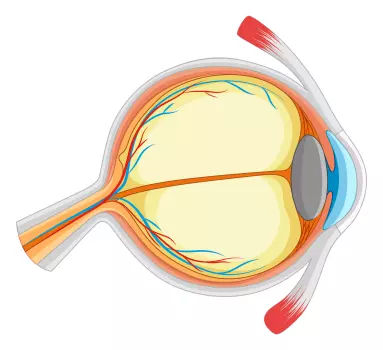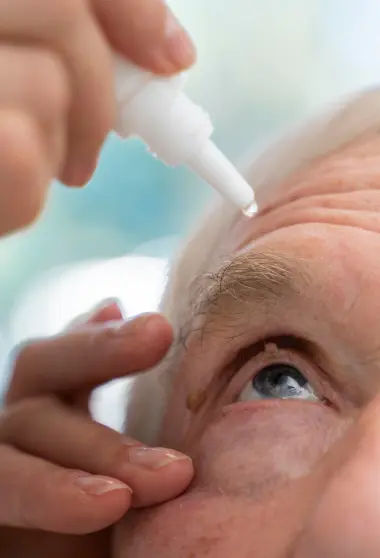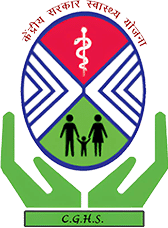
About Squint Surgery
How squint affect vision?
When to get medical advice?
Consult your doctor if -What are the types of squint?
The following terms describe strabismus by the positions of the eye:
Signs & Symptoms

Light sensitivity.

Blurred vision.

Dark, floating black spots in your field of vision (floaters).

Decreased vision.

Cloudy or foggy vision

FAQ
1. What symptoms do children with poor vision present with? When should children get their eyes checked?
A child with poor vision may manifest in the following ways:
- Sits too close to the TV
- Squinting or crossing of eyes
- Adopting an unusual position of head or face (looking through the sides)
- Itching or rubbing of the eyes
- Redness in the eyes
- Sensitivity to light
Any of the above symptoms or complaints from your child should not be neglected. Some eye conditions and diseases are hereditary and can affect your child as well. Consult your child’s doctor or an ophthalmologist at the earliest for early detection and treatment of eye disorders.
2- How is a squint diagnosed?
A squint can be diagnosed through a comprehensive eye examination performed by a squint specialist. The examination may include tests to evaluate eye movements, visual acuity, and binocular vision. In some cases, additional tests such as imaging or orthoptic evaluation may be recommended to determine the underlying cause of the squint.
3- What are the treatment options available for a squint?
The treatment for a squint depends on its underlying cause, severity, and the patient’s age. Non-surgical options may include prescription eyeglasses, eye exercises, or the use of prisms. In other cases, surgical intervention may be necessary to adjust the position of the eye muscles and align the eyes properly.
4- What is the right age to plan squint surgery?
If your child is having squint which requires surgery, earlier the better. Getting squint surgery done within 6 years of age can lead to complete vision development including binocular vision and is often recommended. Discuss with our pediatric squint specialists to know exact timeline of your child’s squint surgery.
5- Do children need glasses?
If children are not able to see small letters clearly or have a significant glass power or squint, then they MUST wear glasses for all their daily activities.
5- What is lazy eye?
Lazy eye is when your eye is functionally not improving with glass power but anatomically eye looks normal.
Squint Eye Surgery & Specialist Treatment in Mumbai
How to diagnose squint?
Children and babies should have routine eye checks as they develop. The American Association for Pediatric Ophthalmology and Strabismus (AAPOS) recommends
starting eye tests at 6 months of age, or earlier if the child has a constant eye turn. The eye doctor will probably use eye drops that dilate the pupils before testing is done.
The Hirschberg corneal reflex test, is one of many tests used to assess whether the patient has strabismus. The eye doctor shines a light in the eye and observes where the light reflects from the corneas.
If the eyes are well-aligned, the light will go to the center of both corneas. If it does not, the test can show whether the patient has exotropia, hypertropia, esotropia, or hypotropia.
What are the causes of squint?
Most often, one eye turns inwards (convergent squint) or outwards (divergent squint). Less often, it may turn up or down (vertical squint). There are different terms for how often the squint is present. If they are there at all times they are termed constant, or if they are only
apparent at certain times they are know as intermittent.
Some babies are born with a squint (known as a congenital or infantile squint) and some children develop a squint later (known as a acquired squint). Acquired squints may be caused by the eye attempting to overcome a vision problem, such as short sightedness or long sightedness and genetic factors play a part in many squints, but in many cases the cause is unknown. Rarely, a squint may be caused by a condition in the eye itself.
What are the treatment options for squint?
Most squints in children need to be assessed as soon as possible to ensure the vision is protected and to improve the chances of successful treatment. Treatments include glasses and, occasionally, eye exercises. If your child has a lazy eye, they may need to wear an eye patch to improve the vision in the affected eye. Many patients may only need the condition monitoring regularly. IN some cases, corrective surgery may be undertaken, most commonly to improve the appearance of the eyes, but sometimes to correct double vision or, in young children, to try
and develop the co-ordination of the two eyes to work together for 3-D (depth) vision. Occasionally, surgery is done to improve an abnormal position of the head. Squint surgery is a very common eye operation. It usually involves tightening or moving one or more of the outside eye muscles which move the eye to change the eye position. These muscles are attached quite close to the front of the eye under the conjunctiva, the clear surface layer. Stitches are used to attach the muscles in their new positions. Squint surgery is nearly always a day-care procedure, so you should be in and out of hospital on the same day. There are two kinds of squint operation – adjustable and non-adjustable. In adjustable surgery, which can be performed in older children and adults, the stitches can be adjusted shortly after the surgery, when the patient is awake. Risks from surgery are rare, but there can be unpredictability in the exact position of the eyes after surgery and sometimes more than one operation will be needed. Occasionally, squints corrected during childhood reappear in adulthood. You should visit your ophthalmologist as soon as possible if you develop a new squint. Botulinum toxin for squint treatment – Botulinum toxin causes a temporary, partial or complete, paralysis(weakness) of the muscle into which it has been injected. To begin with, you may notice a temporary reversal of your squint, followed by gradual straightening of the eyes as the paralysis wears off.
Testimonials from our patients
We understand that clear and enhanced vision is a precious gift that transforms lives. With each individual and family, we’ve had the privilege to serve, our commitment to exceptional eye care has yielded more than just healthier eyes! We proudly share the heartfelt experiences of our patients, who have entrusted us with the chance to serve them, enhancing their life experiences.














